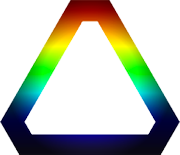Rate Prism
Try it and you'll love it ! Prism doesn't install a bunch of modules that can make your computer malfunction. Replace your many programs with one!
60 days free trial
60 days to evaluate Prism
Evaluation conditions
- The software will run in the mode (Light or Advanced) of the user's choice.
- The software will run as a licensed version (no watermarks on images or other restrictions) for 60 days.
- It is possible to use telescopes, filter, wheels, simulation CCD/CMOS cameras, or any real devices connected to your PC.
- Hardware: PRISM works with almost all existing hardware as long as it is ASCOM compatible (telescope, camera, filter, wheel...)
Minimum configuration
- PC compatible (works on Mac and Linux through Windows PC virtual machines
- Windows 7, 8, 10 and 11 versions 32 or 64 bits.
- 4 GB of hard disk
- 4 GB of RAM
- Intel or AMD CPU with a frequency higher than 1Ghz
- 1920x1080 screen required, for a good comfort of use, resolution of 1920x1200 pixels or higher recommended.
Reference users !
Reference users
• Stéphane GUISARD (Los Cielos de América)
• Claudine RINNER (comets discovery thanks to PRISM)
• Christian ARSIDI
• and thousand of users all over the world…
• and thousand of users all over the world…
And a list of prestigious institutes around the world that use PRISM
• ESO, European Southern Observatory (La Silla, Paranal, Garching HQ)
• Observatoire de la Côte d’Azur,OCA, France
• Laboratoire d’Astrophysique, Observatoire de Grenoble, France
• OHP, Observatoire de Haute Provence, France
• Smithsonian Center for Astrophysics, MMT, USA
• Observatoire du Pic du Midi, France
• Centre Universitaire d’Orsay, France
• Société Astronomique de Genève, Suisse
• Service d’Astrophysique, CEA, Saclay, France
• Laboratoire de Chimie et Ingénierie de l’Environnement, France
• Institut d’Astrophysique de l’Université de Liège, Belgique
• Observatori Astronomico de Mallorca, La Palma, Spain
• Instituto de Astrofisica de Andalucia, Grenada, Spain
• Observatoire François-Xavier Bagnoud, Suisse.
• Observatoire de Bordeaux
• Laboratoire Astronomie UFR Sciences Montpellier
